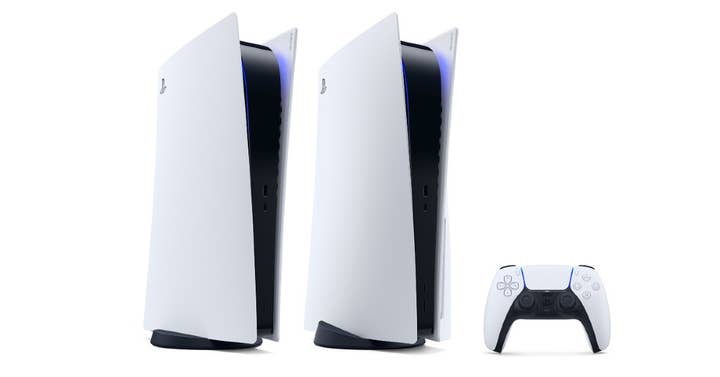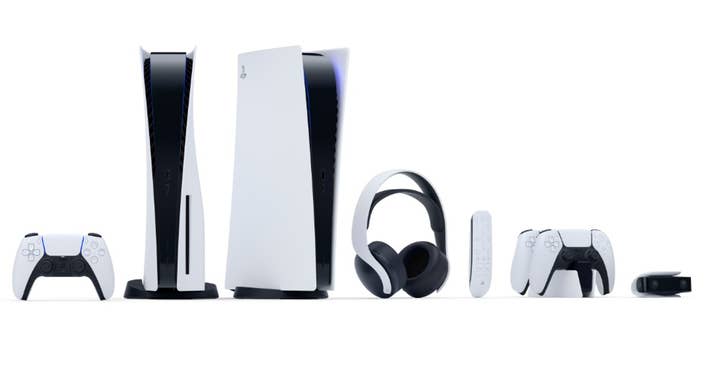Shortages amid record sales: Consumers face a frustrating Christmas | Opinion
It's common for consoles to sell out around the holidays, but it's more irritating after a year in which supply never met demand
Console shortages around Christmas are hardly a novelty. Anyone who's been around the industry for a while will have seen the same headlines crop up in November and December many, many times -- frustrated families who can't find the Christmas gift they'd promised; empty store shelves; Scrooge-like scalpers charging exorbitant prices to desperate parents; even the occasional dramatic story about cargo planes airlifting in emergency stocks of in-demand consoles from factories in East Asia. Nintendo's Wii rather famously managed to be the toy that nobody could get their hands on for love nor money for not just one Christmas, but several in a row; cast your mind back further and you may recall years when the media breathlessly reported on mad scrambles to find a PlayStation 2 in time for the holidays.
This Christmas is simultaneously no different -- and very different. On the surface, the stock shortages we're seeing across the board look like business as usual; lots of people want a new console for the winter holidays, there are only so many to go around, and the result is a major supply constraint on the most desirable items.
Normally, the Christmas demand is easier to cope with because over the previous months anyone who wanted a console could buy one. That's literally never been the case for the new Xbox and PlayStation systems
The big difference, however, is that this isn't a supply constraint which suddenly materialised in the autumn as people started buying Christmas gifts and demand outstripped the capacity of the supply chain. This constraint has been in place since last Christmas and beyond; it's a continuation and a worsening of supply issues that have relentlessly plagued the games hardware market, and the consumer electronics market more generally, for well over a year.
Thus, we find ourselves in a situation where rather than seeing some sporadic problems with availability around November and December for the top-performing systems, we've seen both the PS5 and Xbox Series X consoles -- and to a lesser extent the almost five-year-old Switch -- being strictly supply-constrained throughout the entire year since their launch and looking set to remain so well into next year.
This is the second holiday season in which getting your hands on any current-gen console at all is going to be a difficult and extremely frustrating crapshoot for many consumers -- something vastly exacerbated by the fact that at no point this year has the process actually been straightforward. Normally, the wave of demand that appears before Christmas is easier to cope with because the existing baseline of demand has been satisfied over the previous months, when anyone who wanted a console could walk into a shop and buy one. That's literally never been the case for the new Xbox and PlayStation systems, and it's rarely been the case for the Switch in many markets, which means that the pent-up demand for the systems has never been sated. That grows the gap between supply and demand -- and it means that there are still frustrated consumers who have been trying to buy a console since last Christmas.
Things may get worse before they get better. A console that's hard to buy in its first Christmas is a normal thing, but the audience at that point is largely enthusiasts and early adopters, who'll grumble about the supply shortages but are unlikely to be dissuaded by them. This far down the road, however, even after a year of constant shortages both of the new consoles are starting to build out their software libraries and becoming increasingly appealing to a wider market as a consequence -- something that's usually timed nicely to happen as supply becomes stable and consumers intrigued by new releases like Halo Infinite can get their hands on systems with ease.

Instead, this ramped up interest and demand is happening even as improvements to the supply situation still look desperately far off. In a kind of Catch-22 situation, it's even possible that the shortages themselves have driven demand to some extent; the difficulty of getting your hands on a PS5 or Xbox Series X has made the consoles into desirable and enviable items well past the point where they would, in previous generations, have become pretty commonplace. Of course, it goes without saying that the shortages are also still attracting scalpers, which has proven to be a huge problem not just for consoles but for high-end PC GPUs, whose supply constraints are even more severe at present. This only further exacerbates the problem and pushes back the resolution of the situation even deeper into next year.
Digital games are one major category that can't be disrupted by supply chain problems, so we can expect a lot of download codes and PlayStation or Xbox Store cards to be turning up in stockings on Christmas Day
It's worth noting that this is something of a perfect storm situation, and I'm not convinced there's anything that the console or GPU manufacturers could have done to fully alleviate the range of different issues that led us here. The widely reported global chip shortage is often fingered as the culprit, but there's no single factor that led to these shortages in isolation. The chip bottleneck plays a role for sure, but both Sony and Microsoft have done a solid job in securing chip supply for their manufacturing -- the PlayStation 5 and Xbox Series X are building up their installed bases at record rates, meaning that the failure to match supply to demand is happening despite the companies producing more units than they ever did for any previous generation of hardware.
That record-breaking demand likely owes itself in part to the pandemic situation (a great many people have found themselves with a lot more time to spend at home than they would usually have), of course; on the other side of the equation, the pandemic has also wreaked havoc, disrupting supply chains that would have been crucial to the console manufacturers being able to ramp up to meet demand even if they had actually been able to successfully increase their orders of chips from the world's vastly over-capacity semiconductor fabrication plants.
The saving grace of the whole situation from the perspective of the video games business is that these supply shortages are impacting pretty much every sector. There's always been a danger in previous years that a console supply shortage would see consumers turn to other options for their holiday spending -- not everyone is a devoted gamer for whom no other Christmas gift will do, and smartphones, tablets, or any of myriad of other appealing devices were always there to pick up the money left burning a hole in consumers' pockets after they couldn't find the console they wanted.
That's still a factor this year, of course, but it's vastly dampened by the fact that many other premium devices are also in short supply -- and even outside the consumer electronics markets, the supply chains for general toys and holiday goods are also being significantly disrupted around the world. Indeed, some aspects of the games industry may end up doing very well out of this situation overall -- the hardware supply chain issues are a major headache, especially for the platform holders, but digital games are one major category that can't be disrupted by supply chain problems, so we can expect a lot of download codes and PlayStation or Xbox Store cards to be turning up in stockings on Christmas Day.
The one thing that seems certain, however, is that we're once again going to see countless headlines being made about empty shelves, frustrated shoppers and price-gouging scalpers in the coming weeks, no doubt reaching a fever pitch as Christmas Eve approaches. This year, though, those headlines will likely have a paradoxical tinge despite the gap between supply and demand being worse than ever -- with record-breaking hardware sales happening even as it seems nobody can get their hands on any hardware.
It's great that the demand has held up, and any business should be happy to see consumers so keen to get their hands on its products -- but let's all hope that by Christmas 2022, we're better equipped to actually keep those products on the shelves.

